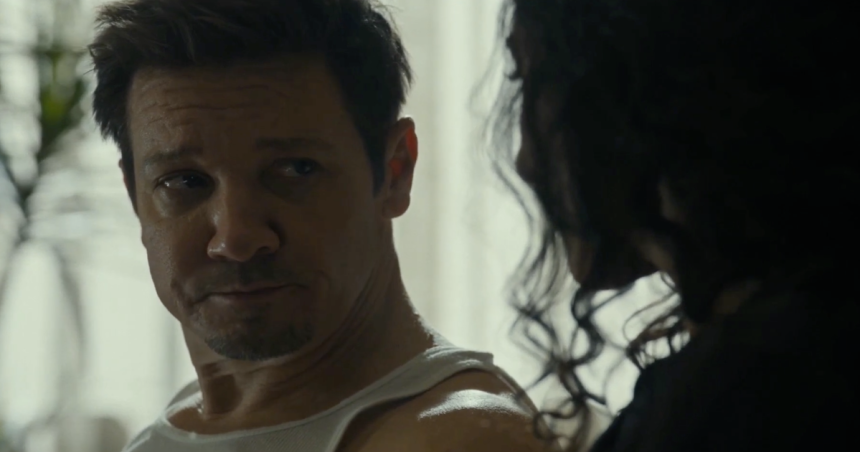Photo: Courtesy Paramount+
Welp … I guessed right. At the end of last week’s Mayor of Kingstown review, I mentioned a quietly touching scene between Mike and Bunny’s cousin Rhonda. While I was describing Rhonda’s thriving cosmetology business, it dawned on me that the show was probably setting her up to be killed. What I did not expect was that she’d be gunned down during the cold open of the very next episode. In her own beauty parlor, no less. While listening — ironically — to the Wesley Paige song “Better Days Are Coming.” Television can be cruel.
This week’s “Ecotone” breaks the season three pattern of quiet, scene-setting episodes followed by stripped-down, action-packed thrillers. Rhonda’s murder would seem to be the kind of all-hands-on-deck crisis that makes for an exciting Mayor of Kingstown. But because Mike makes it his top priority to keep the situation from spinning out of control, the episode ends up getting sapped of a lot of its potential charge.
What’s most notable about Mike’s de-escalation strategy is that it’s rooted in a persistent organizing principle — protecting Bunny Washington — that has been increasingly limiting his options. The whole point of “the Mayor” is that he listens to everybody, works with everybody and brokers deals that allow everybody in Kingstown to coexist, both inside and outside the prison walls. Deal drugs? Mike doesn’t care. Traffic in humans? Hey, everyone’s gotta make a living. Lead a racist gang? Feel free to call Mike anytime, day or night.
But Mike’s decisions over the past two seasons have been so Bunny-centric that it’s easy to understand why the other crime bosses in Kingstown (and some members of law enforcement, too) are getting a little miffed. What do they get out of respecting Mike’s authority if they come out on the short end in every negotiation?
In the wake of Rhonda’s death, Mike mainly wants to keep Bunny’s crew from killing the wrong person and sparking the kind of all-out gang war that sees reinforcements streaming in from other cities. The idea is to “limit the options” for Bunny, so that any retaliation lands hard on forgettable flunkies — anyone without dialogue, basically.
To that end, Mike asks the KPD to execute a raid on the Russians, arrest Konstantin and his direct reports, and keep them off the streets for now. The complication? The only way to pull off an operation like this is to use SWAT, which under Robert Sawyer’s command is often just as destructive as the Crips. Mike basically orders Sawyer to play it cool, in part to protect Iris (who Mike also warns about the raid … though she chooses to be there when SWAT arrives anyway, because it’d be suspicious if she weren’t). Iris ends up getting manhandled a little; but at least no one is killed.
If Konstantin is grateful for the protection, he doesn’t show it. He’s as infuriatingly smug as always in a tense interrogation scene, where Ferguson tries to get him to answer for the death of Tatiana and for the baby he tossed in a dumpster. Konstantin’s unflappable. After all, the cops have nothing on him. There’s no evidence that he was involved with Tatiana’s murder. He neither owns nor runs the club that SWAT just stormed, so he’s not liable for any drugs or fake visas found there. And the baby? Konstantin blames the police for saving it. “That baby will lead a tortured life,” he says icily.
This is the main problem when a civic power structure relies on unelected officials (and yes, I’d include the KPD here). There’s a telling scene in this episode between Raphael and his lady at the prison, where he warns her there’s “no difference no more, soldier and civilian” and urges her to move out of Kingstown with their academically gifted son. Then suddenly their conversation is disrupted by a jerky guard, Thomas (Benny Mora), who accuses them of passing contraband and has them violently yanked away from each other. But what are they supposed to do about it? There’s no official hierarchy to appeal to.
Really, the person who seems to be the most in control right now is Merle Callahan. During his Bunny-proofing campaign, Mike asks Kareem to move Merle into solitary. Again, Mike’s trying to keep the Crips from making a disastrous move; but the Aryan reads it (not entirely inaccurately) as a reassertion of Mayoral power. So when the two old friends (?) finally have a face-to-face at the end of the episode, Merle speaks to Mike frankly.
Well … eventually he does. First, he has to speak allusively for a while, explaining to Mike the definition of an “ecotone.” (It’s the area of overlap between habitats, which teems with life.) Merle then tells Mike he has no fear of his new partner Konstantin because they’re both predators, and predators have no need to eat each other so long as there’s plenty of prey around — like in the ecotone between a prison and its surrounding community.
Then Merle gets to the point: He only wants to do business with predators. Mediators like Mike are of no real use to him. Or, to put it another way: “You want balance? Hit Bunny Washington.”
Better days are coming? Not hardly.
• The big theme of this episode is leadership, chain of command, and accountability — not just who’s in charge but who’ll take responsibility for the decisions that get made. We see that in a scene between Tracy and Warden Michaels (Tara Karsian) at the women’s prison. When Tracy wants someone to answer for a pregnant prisoner who was clearly sexually assaulted by a guard, the warden advises her to use the anonymous tip line. In Kingstown, it’s dangerous for anyone to sign their name to anything.
• Carney gets a similar lesson when he takes the lead on figuring out how the Aryans are getting narcotics into the prison. He’s just gotten an answer (via the auto shop!) when Thomas has him pulled aside and beaten, reminding him that he doesn’t answer to the warden or to Mike; he answers to the brotherhood of white guards, who have their own agenda and alliances.
• When one of Merle’s minions suggests they increase their numbers by founding a branch of the white supremacist European Kindred in Kingstown, Merle scoffs. “Save that RaHoWa crap for the trailer park,” he says. For the uninitiated (I had to Google it), that means “racial holy war.” Merle may be a bigot, but he’s apparently not a zealot.
• A haunting thought from Bunny while looking at a picture of an old man at the funeral home where Rhonda rests: “Can you imagine that shit, Mike? Dying old? Dying in your sleep?”












